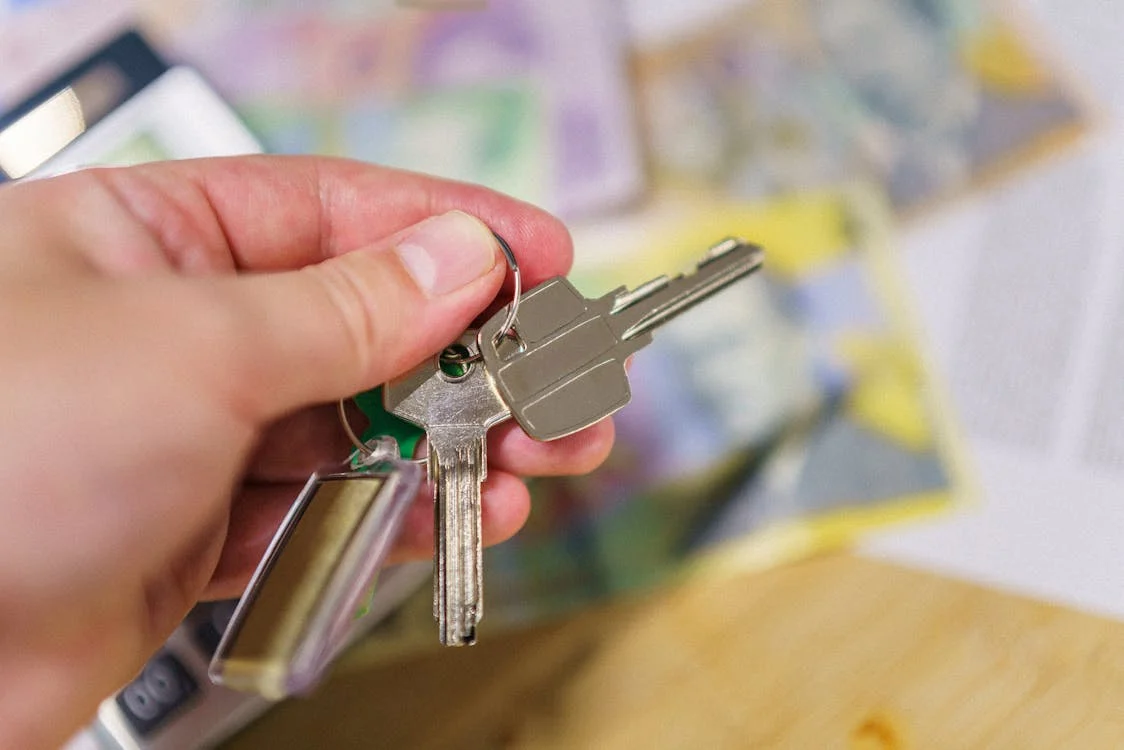
Key takeaways:
- Home equity loans allow Winnipeg homeowners to borrow against their property’s value
- Fixed interest rates and lump sum payouts are typical features
- Funds can be used for renovations, debt consolidation, or other major expenses
- Careful consideration of risks and alternatives is essential before borrowing
- Local market conditions and regulations impact loan terms and eligibility
Home equity loans provide Winnipeg homeowners with a way to access the value built up in their property over time. This financial tool allows you to borrow against the equity in your home, typically offering a lump sum payout with a fixed interest rate. Before diving into the details, it’s important to understand that home equity loans come with both benefits and risks that need careful consideration.
Understanding home equity in Winnipeg’s real estate market
What is home equity?
Home equity is the difference between your property’s current market value and the amount you still owe on your mortgage. For example, if your Winnipeg home is worth $400,000 and you have $250,000 left on your mortgage, your home equity would be $150,000.
How Winnipeg’s housing market affects equity
Winnipeg’s real estate landscape has its own unique characteristics that impact home equity. The city has seen steady growth in property values over the years, which has helped many homeowners build substantial equity. However, it’s important to note that market fluctuations can affect your home’s value and, by extension, your available equity.
The mechanics of home equity loans
How home equity loans work in Winnipeg
When you take out a home equity loan in Winnipeg, you’re essentially borrowing against the portion of your home that you own outright. Lenders typically allow you to borrow up to 80% of your home’s appraised value, minus the amount you still owe on your mortgage.
Terms and conditions to expect
Home equity loans in Winnipeg usually come with fixed interest rates and terms ranging from 5 to 30 years. You’ll receive the loan amount as a lump sum and will need to make regular monthly payments to repay both the principal and interest.
Pros and cons of home equity loans for Winnipeg homeowners

Advantages of tapping into your home’s equity
One of the main benefits of home equity loans is the potential for lower interest rates compared to other forms of borrowing, such as credit cards or personal loans. This can make them an attractive option for consolidating high-interest debt or financing large expenses like home renovations.
Potential drawbacks to consider
The biggest risk of a home equity loan is that your home serves as collateral. If you can’t make the payments, you could potentially lose your property. Also, if property values in Winnipeg decline, you might end up owing more than your home is worth.
Comparing home equity loans to other borrowing options
Home equity loans vs. HELOCs
While both use your home’s equity as collateral, home equity loans provide a lump sum with fixed payments, while Home Equity Lines of Credit (HELOCs) offer revolving credit with variable rates. HELOCs might be more suitable for ongoing expenses or projects with uncertain costs.
Alternatives to consider
Before committing to a home equity loan, Winnipeg homeowners should explore other options. These might include personal loans, refinancing your existing mortgage, or government assistance programs for home improvements or debt relief.
Qualifying for a home equity loan in Winnipeg
Credit score requirements
Most lenders in Winnipeg require a credit score of at least 620 for home equity loans. However, a higher score can help you secure better interest rates and terms.
Income and debt-to-income ratio considerations
Lenders will look at your income and debt-to-income ratio to ensure you can afford the loan payments. Generally, your total monthly debt payments, including your mortgage and the new loan, shouldn’t exceed 43% of your gross monthly income.
Using home equity loans wisely
Smart ways to use your loan
Home equity loans can be valuable tools when used responsibly. Common uses include:
- Financing home renovations that increase your property’s value
- Consolidating high-interest debt
- Covering major expenses like education costs or medical bills
Pitfalls to avoid
It’s crucial to avoid using home equity loans for non-essential expenses or short-term needs. Using your home’s equity to finance vacations or luxury purchases can put your property at risk and erode your long-term wealth.
The application process for Winnipeg homeowners
Steps to apply for a home equity loan
- Determine your home’s current value
- Calculate your available equity
- Shop around for lenders and compare rates
- Gather necessary documentation (proof of income, tax returns, etc.)
- Submit your application
- Wait for the appraisal and underwriting process
- Review and sign loan documents
Required documentation
Be prepared to provide:
- Proof of income (pay stubs, tax returns)
- Bank statements
- Mortgage statements
- Property tax assessments
- Homeowners insurance information
Interest rates and fees in Winnipeg’s market
Current rate trends
As of 2023, home equity loan rates in Winnipeg typically range from 4% to 8%, depending on factors like credit score, loan-to-value ratio, and loan term. It’s important to shop around and compare offers from multiple lenders.
Understanding associated fees
Common fees for home equity loans in Winnipeg include:
| Fee Type | Typical Cost Range |
|---|---|
| Appraisal Fee | $300 – $500 |
| Application Fee | $0 – $300 |
| Legal Fees | $500 – $1,000 |
| Title Search | $75 – $150 |
Tax implications for Winnipeg residents
Deductibility of interest
Unlike in the United States, the interest on home equity loans in Canada is generally not tax-deductible unless the funds are used for investment purposes or to generate income.
Consulting with a tax professional
It’s advisable to consult with a local tax professional to understand how a home equity loan might impact your specific financial situation and tax obligations in Winnipeg.
Repayment strategies for home equity loans

Creating a repayment plan
Develop a solid repayment strategy that fits your budget. Consider setting up automatic payments to ensure you never miss a due date.
Dealing with financial hardships
If you encounter financial difficulties, contact your lender immediately. Many Winnipeg lenders offer hardship programs or loan modifications that can help you avoid defaulting on your loan.
The impact of home equity loans on your credit
How borrowing affects your credit score
Taking out a home equity loan can initially cause a slight dip in your credit score due to the hard inquiry and new account. However, making timely payments can positively impact your credit over time.
Managing your credit responsibly
To maintain a good credit score while having a home equity loan:
- Make all payments on time
- Keep your overall debt levels low
- Avoid applying for new credit unnecessarily
Winnipeg-specific considerations for home equity loans
Local market trends affecting loan terms
Winnipeg’s real estate market has its own unique characteristics that can impact home equity loan terms. For instance, the city’s relatively stable housing market might lead to more favorable loan-to-value ratios compared to more volatile markets.
Municipal regulations to be aware of
Winnipeg homeowners should be aware of local regulations that might affect home equity loans, particularly if the funds are intended for renovations. Always check with the city’s planning department regarding permits and zoning restrictions before starting any major home improvement projects.
Case studies: Winnipeg homeowners and equity loans
Success stories and cautionary tales
While many Winnipeg homeowners have successfully used home equity loans to improve their financial situations or invest in their properties, others have faced challenges. Learning from both positive and negative experiences can help you make an informed decision.
Lessons learned from local experiences
Common themes from Winnipeg homeowners’ experiences include:
- The importance of having a clear plan for using the funds
- The need for a robust repayment strategy
- The value of shopping around for the best rates and terms
Future outlook for home equity loans in Winnipeg
Predicted trends in the local market
As Winnipeg’s real estate market continues to evolve, home equity loan offerings are likely to adapt. Keep an eye on factors like interest rate trends, property value projections, and new financial products that might impact the home equity loan landscape.
Potential changes in regulations or lending practices
Stay informed about any upcoming changes to lending regulations or practices that could affect home equity loans in Winnipeg. These might include adjustments to loan-to-value ratios, interest rate caps, or new consumer protection measures.
Choosing the right lender for your home equity loan
Evaluating Winnipeg-based lenders
When selecting a lender for your home equity loan, consider factors such as:
| Factor | Why It’s Important |
|---|---|
| Interest Rates | Directly impacts your monthly payments and total cost |
| Fees | Can significantly add to the overall cost of the loan |
| Customer Service | Ensures smooth processing and ongoing support |
| Local Presence | May offer better understanding of Winnipeg’s market |
Questions to ask potential lenders
- What is the current interest rate, and is it fixed or variable?
- What fees are associated with the loan?
- What is the maximum loan-to-value ratio you offer?
- How long does the approval and funding process typically take?
- Do you have experience with Winnipeg’s real estate market?
Preparing your home for appraisal
Tips for maximizing your home’s value
Before the appraisal for your home equity loan:
- Clean and declutter your home
- Make minor repairs and touch-ups
- Gather documentation of recent improvements
- Ensure all systems (HVAC, plumbing, electrical) are in good working order
Understanding the appraisal process
The appraisal will consider factors like your home’s condition, size, location, and recent sales of comparable properties in Winnipeg. Be prepared to provide access to all areas of your home and answer questions about any upgrades or unique features.
Alternatives to home equity loans for Winnipeg homeowners

Exploring other financing options
While home equity loans can be useful, they’re not always the best choice. Consider alternatives such as:
- Personal loans
- Credit card balance transfers (for short-term needs)
- Cash-out refinancing
- Government assistance programs for home improvements or debt relief
When to consider alternatives
You might want to look at other options if:
- You don’t have significant equity in your home
- You’re uncomfortable using your home as collateral
- You only need a small amount of money
- You’re planning to sell your home in the near future
Conclusion: Making an informed decision
Home equity loans can be a powerful financial tool for Winnipeg homeowners, offering access to funds at potentially lower interest rates than other forms of borrowing. However, they also come with significant responsibilities and risks. Before deciding to tap into your home’s equity, carefully consider your financial goals, repayment ability, and alternative options. Consult with financial professionals who understand Winnipeg’s unique real estate and lending landscape to ensure you’re making the best choice for your situation. Remember, your home is likely your most valuable asset – treat any decisions about leveraging its equity with the seriousness they deserve. For more information, visit our website or contact us!